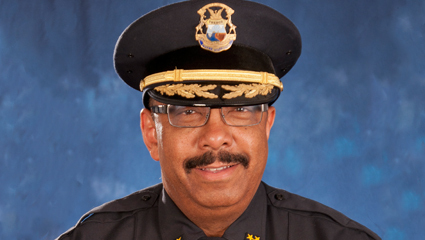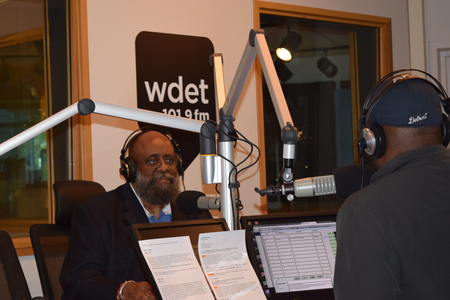Shootings of Police and Civilians: How Are Tensions Changing?
“How good you are with the gun also has to be compared to how well you are in your mental state,” says Dr. Carl Taylor.


There have been several cases of violence against police officers in Detroit in recent weeks, including eight officers in the city who were shot or killed in the past eight months. The job of a police officer comes with inherent danger, which is sometimes deadly. But what does a spate of violence against officers do to a department, to individual morale, and to a city or state’s ability to recruit new officers?
Detroit Today host Stephen Henderson speaks with Wayne State University Police Chief Tony Holt about the danger police officers face every day, and how it impacts a person’s ability to do their job.
“All officers coming onto the job, it’s a part of the training,” Holt says. “You know that inherent danger exists when you take that job. But the realization once you see… the death of officers, it really hits you smack in the face… Even though you’re trained for it, you’re nearly never prepared for that. The hurt is felt throughout the department. It puts morale down… it sends an alert. It puts your caution level up. And you realize that every person you talk to, every car you stop, that potential danger is right there.”
These effects sound a lot like the devastation in communities who have fallen victim to deadly police shootings. Recent news regarding deaths of unarmed, black men at the hands of police in South Carolina and Texas have reminded the nation about fault lines in the American criminal justice system.
Chief Holt explains that, although officers receive several hours of professional training, he agrees that preparation for policing communities while avoiding racism must go further than the academy.
“That 8 or 12 hours or 20 hours is not going to be enough. What you have to do is you have to reinforce that training once that officer is on the job. We want to try to [be] heavy on the stance that you have to have a stake in the community… you have to make them understand that and feel that. Race is always the elephant in the room that we really don’t want to face and we really don’t want to discuss, but we have to do that. That is necessary.”
Henderson continues the conversation with Carl Taylor, professor of sociology at Michigan State University. He says that it all comes down to professionalism.
“The police have a huge responsibility that we are asking them to carry, and they are human,” explains Taylor. “But… the word is professionalism and good training… Many times, we get mixed up, machismo, you know… being tough, and quick to draw. How good you are with the gun also has to be compared to how well you are in your mental state… Some people cannot handle that power.”
To hear the full conversation, click the audio player above.
